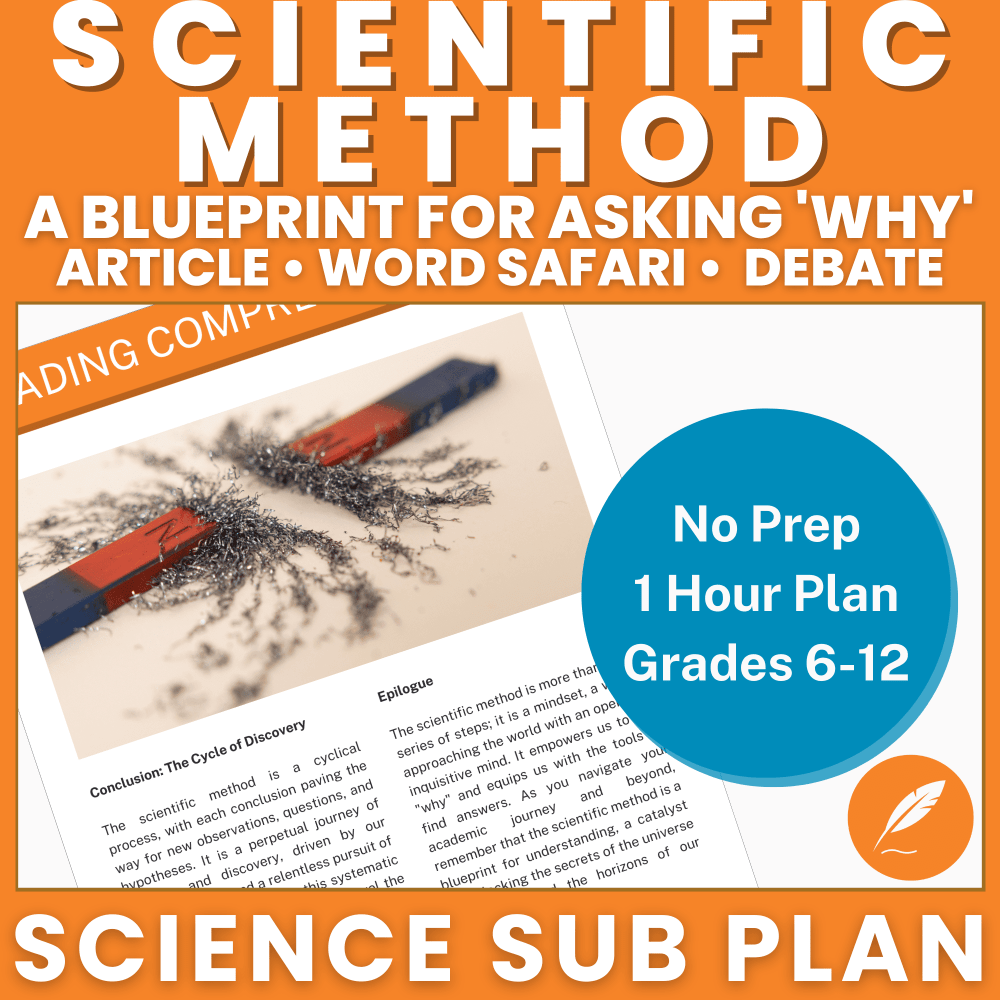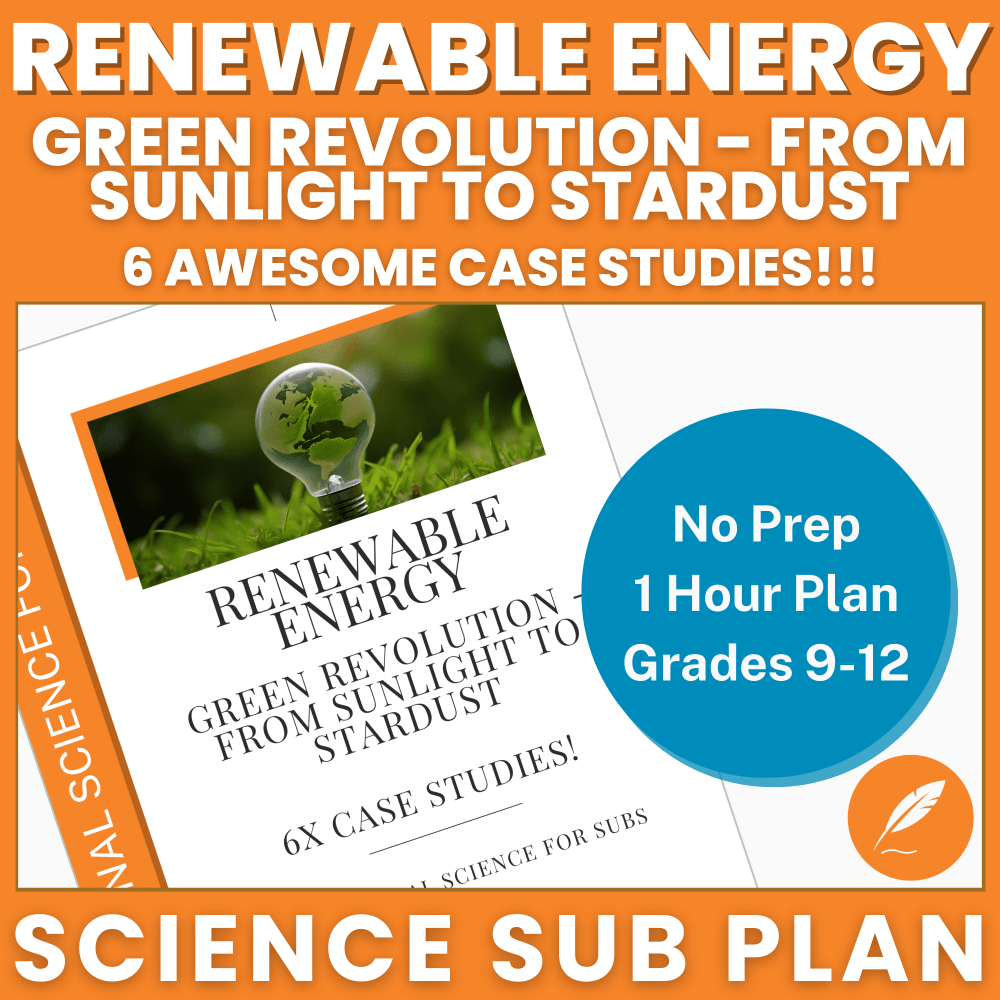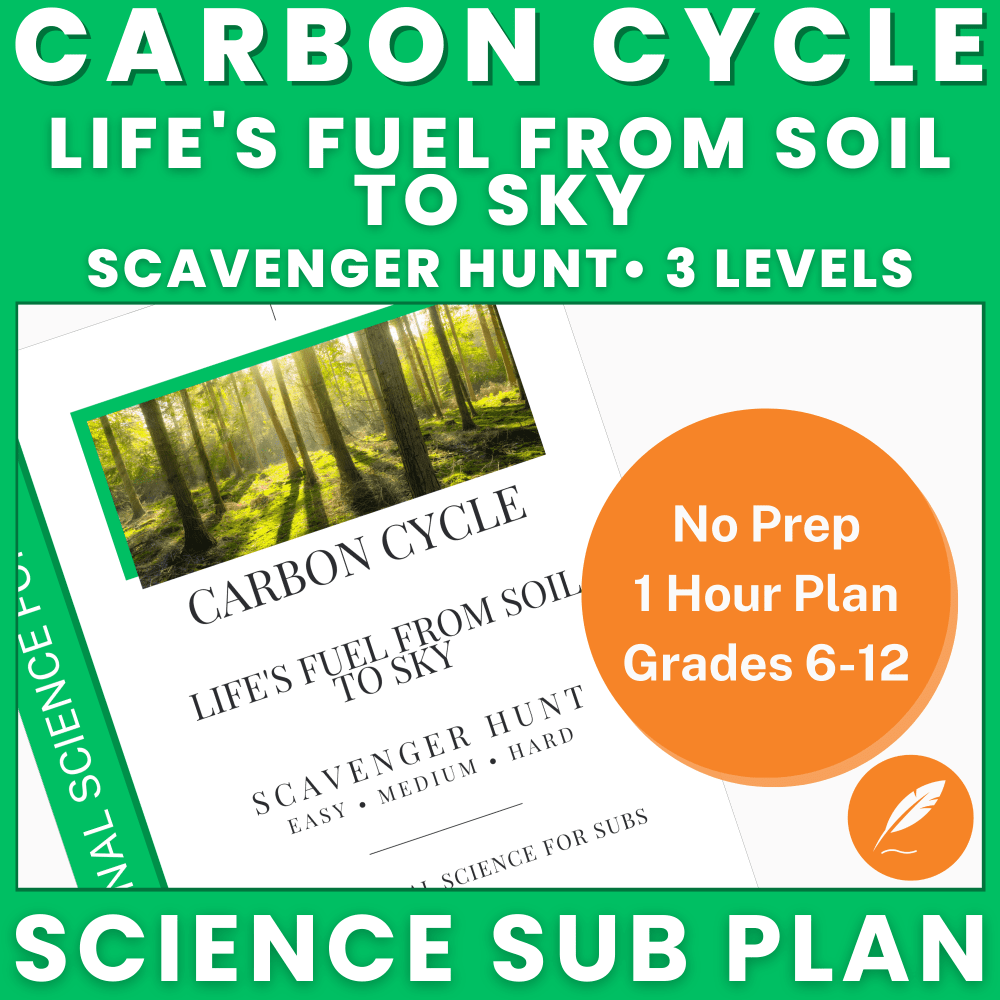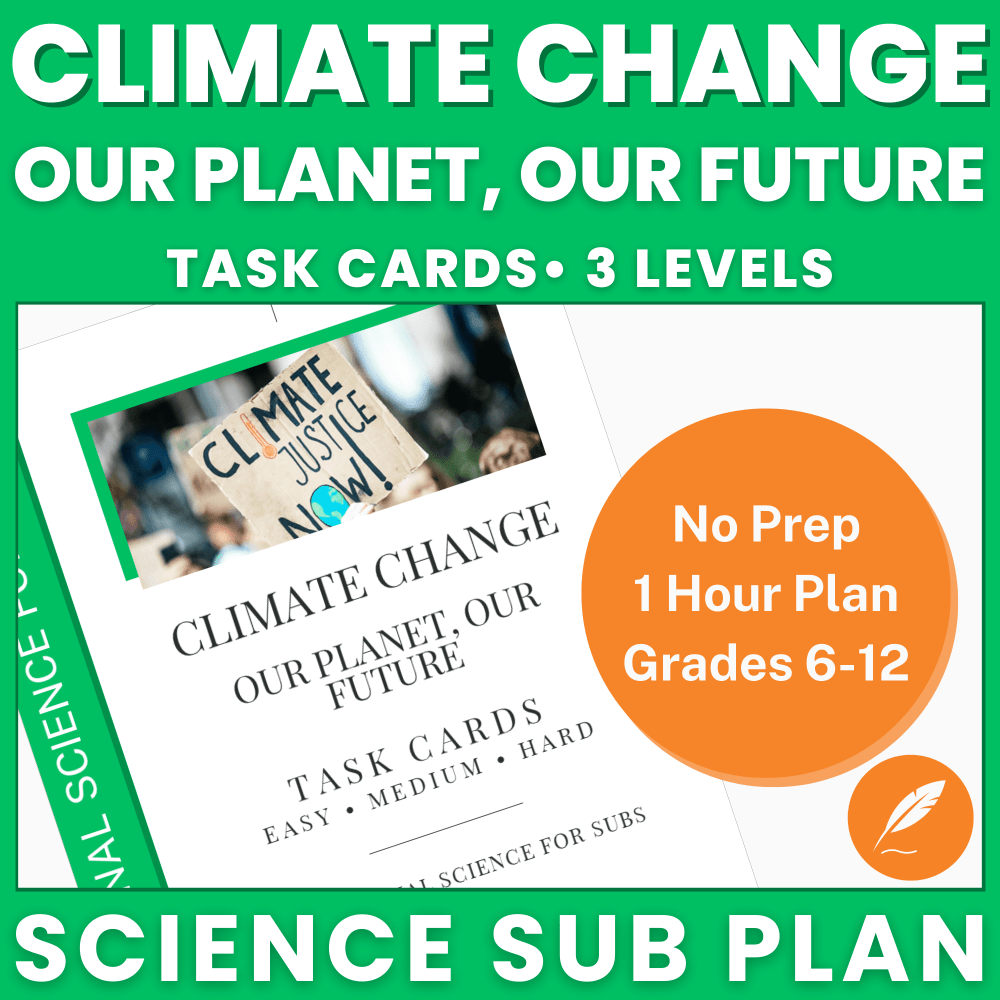Crack the Code: Reading for Science Success
Ever felt like you're decoding an alien language when tackling scientific texts? You're not alone! Reading comprehension in science can be a real head-scratcher, but it's the key to unlocking a world of knowledge. By honing your science literacy skills, you'll not only boost your understanding but also save heaps of time in the long run. This post is all about helping you and your students crack that scientific code, turning those tricky texts into goldmines of information. So, grab your detective hat and magnifying glass - we're about to embark on a journey that'll transform how you approach science reading. But here's the burning question...
More...
Why Reading Matters in Science Class
Reading isn't just about novels and poetry - it's the backbone of scientific understanding. In science class, strong reading skills are your secret weapon for decoding complex concepts and staying ahead of the curve.
Beyond the Textbook
Science reading goes far beyond textbooks. It's about diving into research papers, analysing data, and interpreting graphs. These skills are crucial for:
• Understanding scientific methods
• Evaluating evidence
• Keeping up with cutting-edge discoveries
The Language of Science
Ever felt like scientific texts are written in a different language? Well, you're not far off! Science has its own vocabulary and way of communicating. Mastering this language through reading helps you:
- Grasp key concepts more quickly
- Communicate scientific ideas clearly
- Think critically about scientific claims
By focusing on reading comprehension in science, you're not just memorising facts - you're building a toolkit for lifelong learning. So, next time you're faced with a daunting scientific text, remember: you're not just reading, you're unlocking the secrets of the universe!
Check out our Articles lesson plans on TPT - complete with Reading Comprehension, a Word Safari and Debate Topics!
Setting Students Up for Science Success
Want to help your students become science superstars? It all starts with setting the stage for successful science reading.
Creating a Science-Rich Environment
Transform your classroom into a haven for scientific curiosity:
- Stock up on science magazines and books
- Display eye-catching infographics and posters
- Set up a 'Question of the Week' board to spark discussions
Building Background Knowledge
Before diving into complex texts, give your students a solid foundation:
- Use videos and interactive simulations to introduce topics
- Encourage hands-on experiments to build real-world connections
- Create concept maps to visualise relationships between ideas
Teach Active Reading Strategies
Equip your students with tools to tackle scientific texts:
- Introduce annotation techniques for highlighting key information
- Practice summarising complex paragraphs in simpler terms
- Encourage students to generate questions as they read
By creating a science-friendly environment and teaching active reading strategies, you'll set your students on the path to becoming confident, curious scientists. But what about those particularly challenging texts? Let's find out...
Check out our Case Studies Lesson Plans on TPT - each has 6x dynamic Case Studies!
Words Matter: Building Science Vocabulary
Let's face it: science can sometimes feel like a foreign language. But don't fret! Building a robust science vocabulary is like adding tools to your mental toolkit.
The Power of Prefixes and Suffixes
Many scientific terms are built from common roots, prefixes, and suffixes. Teaching students to recognise these can be a game-changer:
- 'Bio-' (life): biology, biodiversity
- '-ology' (study of): ecology, geology
- 'Thermo-' (heat): thermometer, thermostat
Unlock #ScienceLiteracy through reading! Explore strategies that help students grasp scientific concepts better. #TeachingScience #TeacherTips @inspirationalscienceforsubs
Context Clues: Your Secret Weapon
Encourage students to become word detectives:
- Look for definitions within the text
- Use surrounding sentences for hints
- Pay attention to examples and explanations
Making Vocabulary Stick
Try these fun strategies to cement new terms:
- Create visual word walls
- Play science-themed word games, like Scavenger Hunts
- Use new terms in hands-on experiments
Remember, building science vocabulary isn't about memorisation - it's about understanding. By focusing on word origins and context, you'll help students crack the code of scientific language.
Check out our interactive Scavenger Hunt Lesson Plans on TPT - great for getting your Science Ninjas out of their seats and getting active!
Reading to Investigate: Science Inquiry
Who says reading and doing are separate? Let's bridge that gap and turn your science readers into science doers!
From Text to Test Tube
Use reading as a springboard for hands-on investigations:
- Challenge students to design experiments based on what they've read
- Encourage them to predict outcomes using textual evidence
- Compare their results with those described in scientific literature
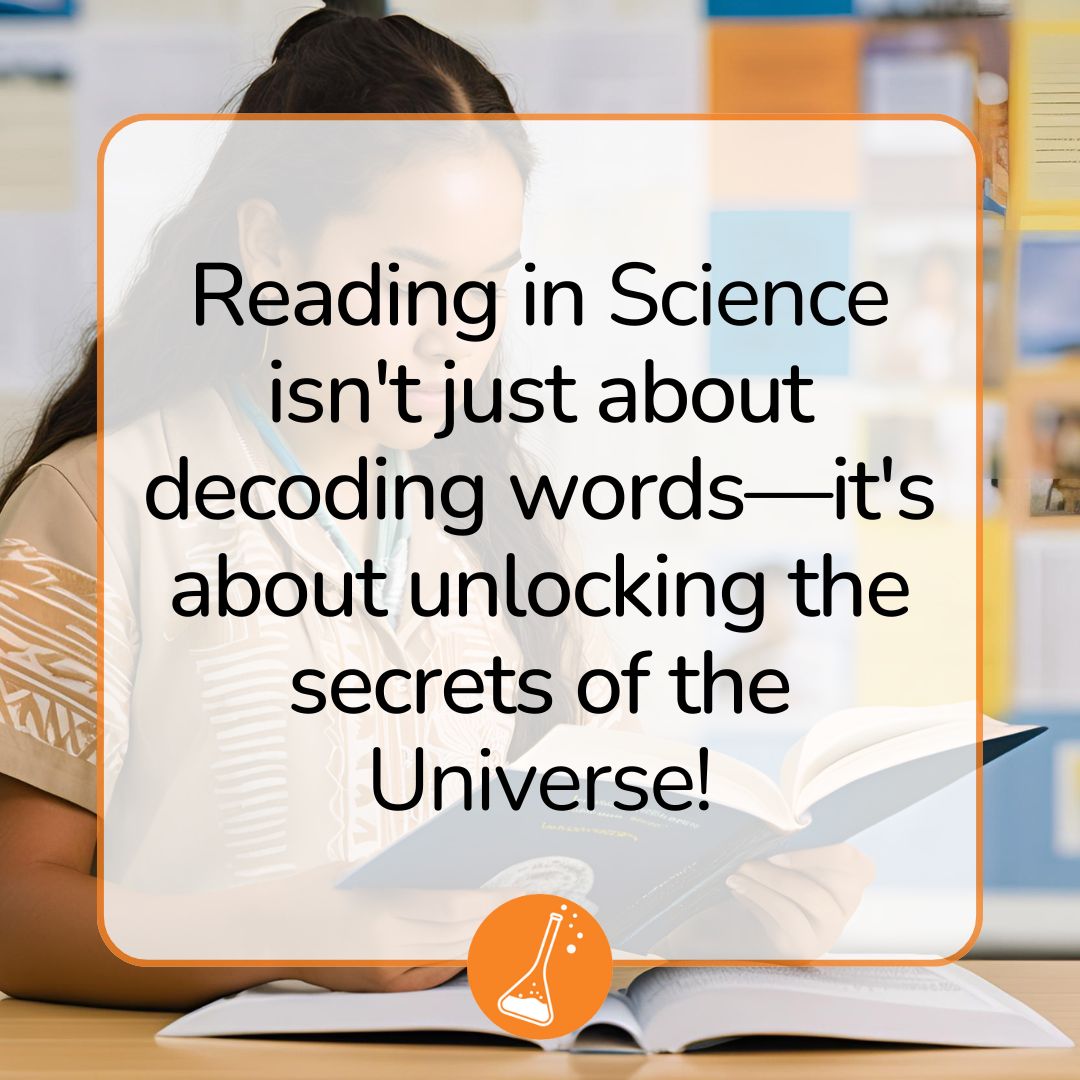
Critical Reading for Critical Thinking
Teach students to approach scientific texts with a critical eye:
- Identify the research question or hypothesis
- Evaluate the methods used
- Analyse the conclusions drawn
Collaborative Inquiry
Foster a community of young scientists:
- Organise journal clubs to discuss scientific articles
- Set up debate sessions on controversial scientific topics
- Encourage students to peer-review each other's experiment write-ups
By linking reading comprehension with practical inquiry, you'll help students see the real-world applications of science. They'll not only understand scientific concepts but also think and act like true scientists.
Renewable Energy Teaching Bundle: Fossil Fuels to Green Power
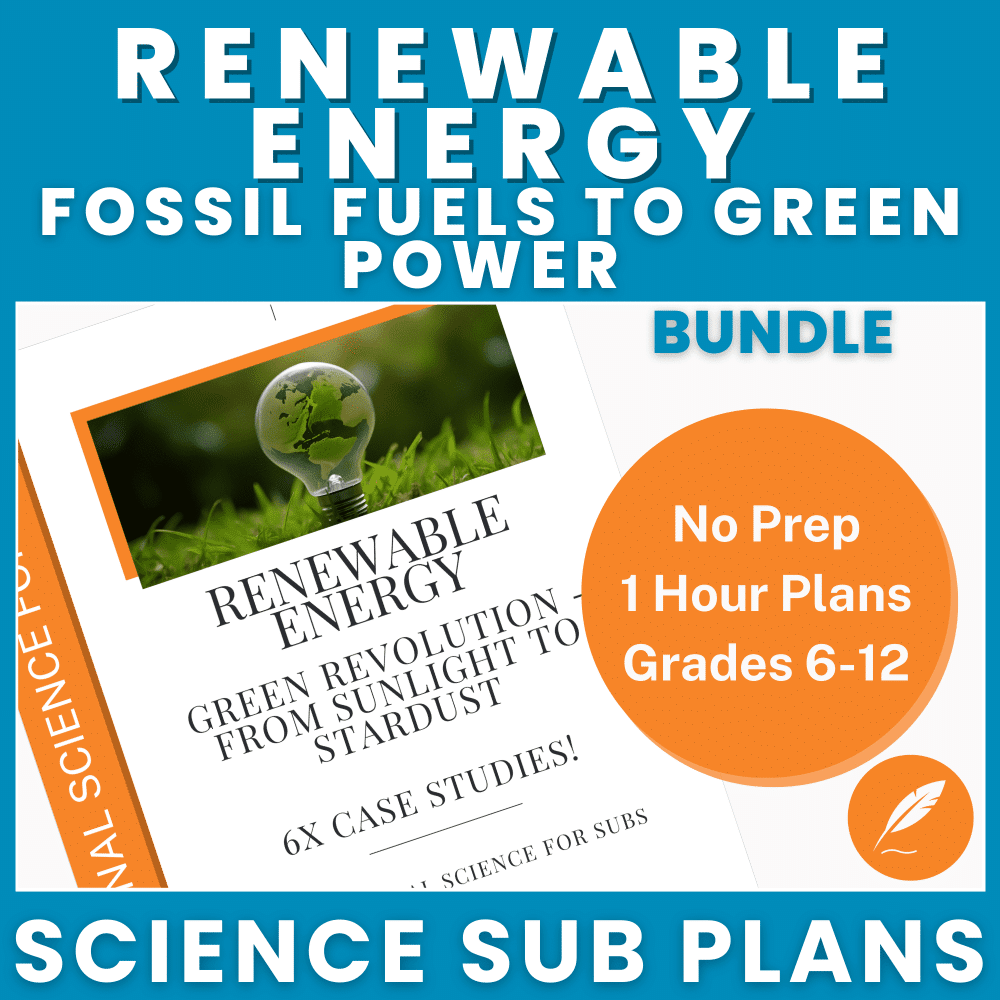
3x No Prep Lesson Plans
Unleash your students' inner Green Warrior with 3 Climate Change lesson plans: Fossil Fuels, The Great Pacific Garbage Patch, Renewable Energy
Lesson plans included:
A Lifetime of Learning: Science and Reading
Guess what? The science adventure doesn't end when the school bell rings. In fact, it's just beginning!
Staying Current in a Fast-Paced Field
Science is always evolving, and strong reading skills are your ticket to keeping up:
- Subscribe to science news websites and magazines
- Follow reputable science blogs and podcasts
- Join online science communities for discussions
Science Literacy for Everyday Life
From understanding health advice to making informed environmental choices, science literacy is a life skill:
- Learn to critically evaluate health claims
- Understand the science behind climate change
- Make informed decisions about technology use
Check out our Task Card Lesson Plans on TPT - complete with 3 difficulty levels to cater to all your students' needs.
Inspiring the Next Generation
As educators, you're not just teaching science - you're nurturing future scientists, doctors, and innovators:
- Share your own science reading journey with students
- Highlight diverse role models in scientific fields
- Encourage students to explore science beyond the classroom
- And don't forget you also need to keep up to date with new books for Science teachers
By emphasising the lifelong value of science literacy, you're equipping students with skills that extend far beyond the classroom. You're preparing them for a future where scientific understanding is more crucial than ever. So, keep reading, keep questioning, and keep exploring - the world of science is waiting for you!
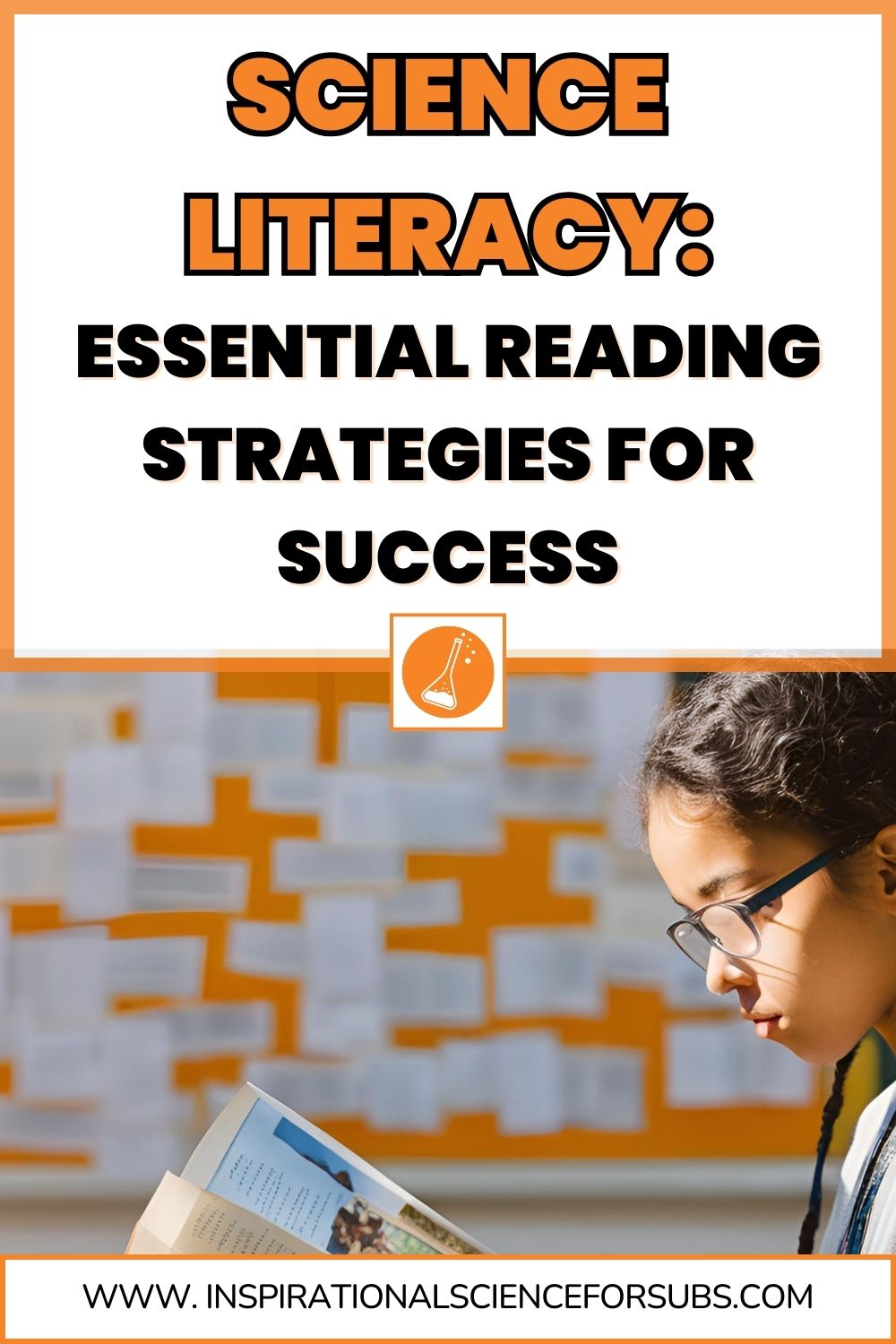
Enjoyed the article?
Summary: The Science of Reading - A Formula for Success
Congratulations! You've just unlocked the secret formula for science literacy success. By focusing on reading comprehension, you're equipping yourself and your students with a powerful toolkit for scientific understanding. Remember, it's not just about decoding words - it's about building critical thinking skills, fostering curiosity, and preparing for a lifetime of scientific discovery. From creating a science-rich classroom environment to linking reading with hands-on inquiry, you're setting the stage for true scientific engagement. So, keep exploring, keep questioning, and keep reading. Who knows? The next big scientific breakthrough might just start with a book in your classroom. Happy science reading!

